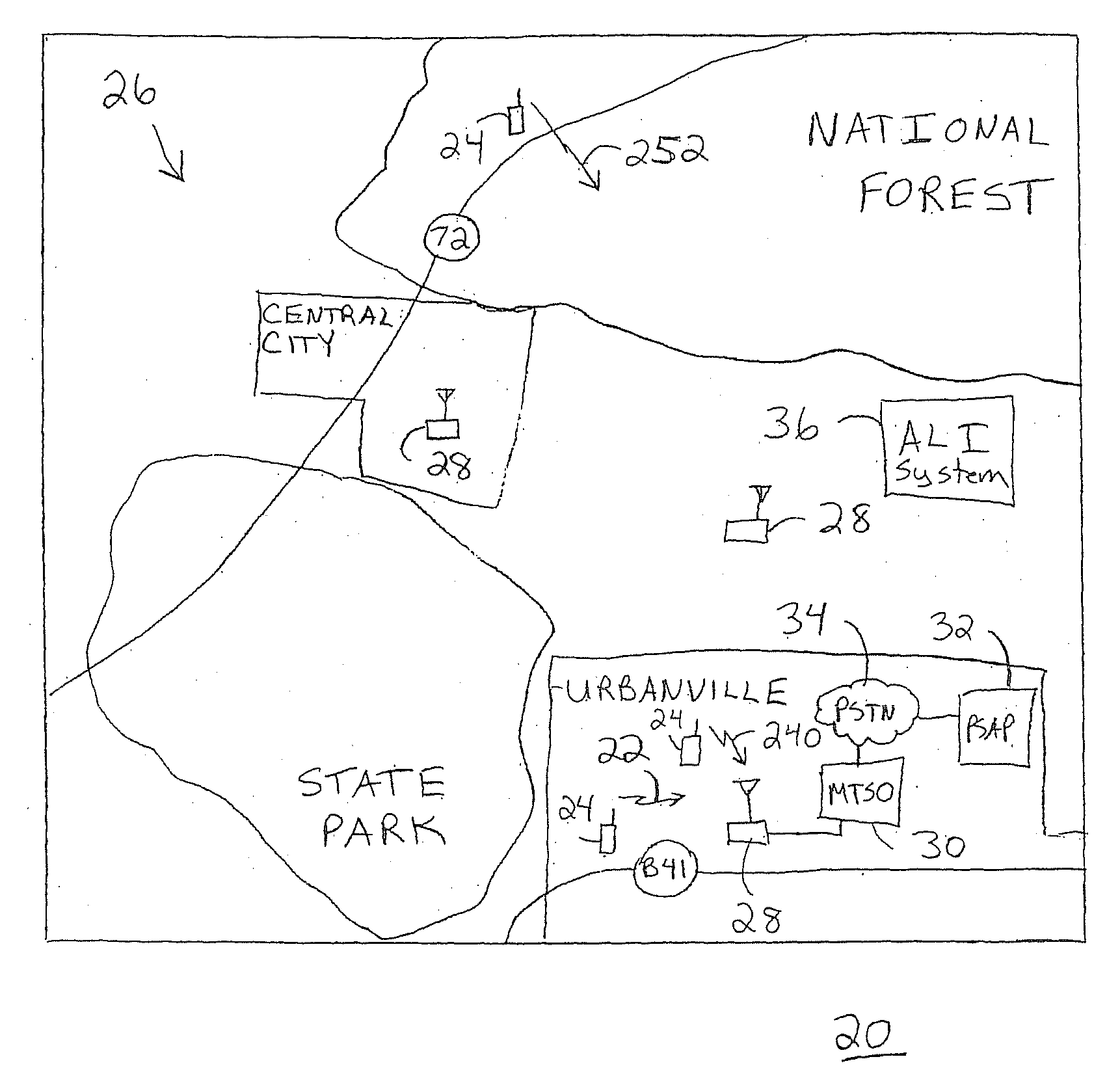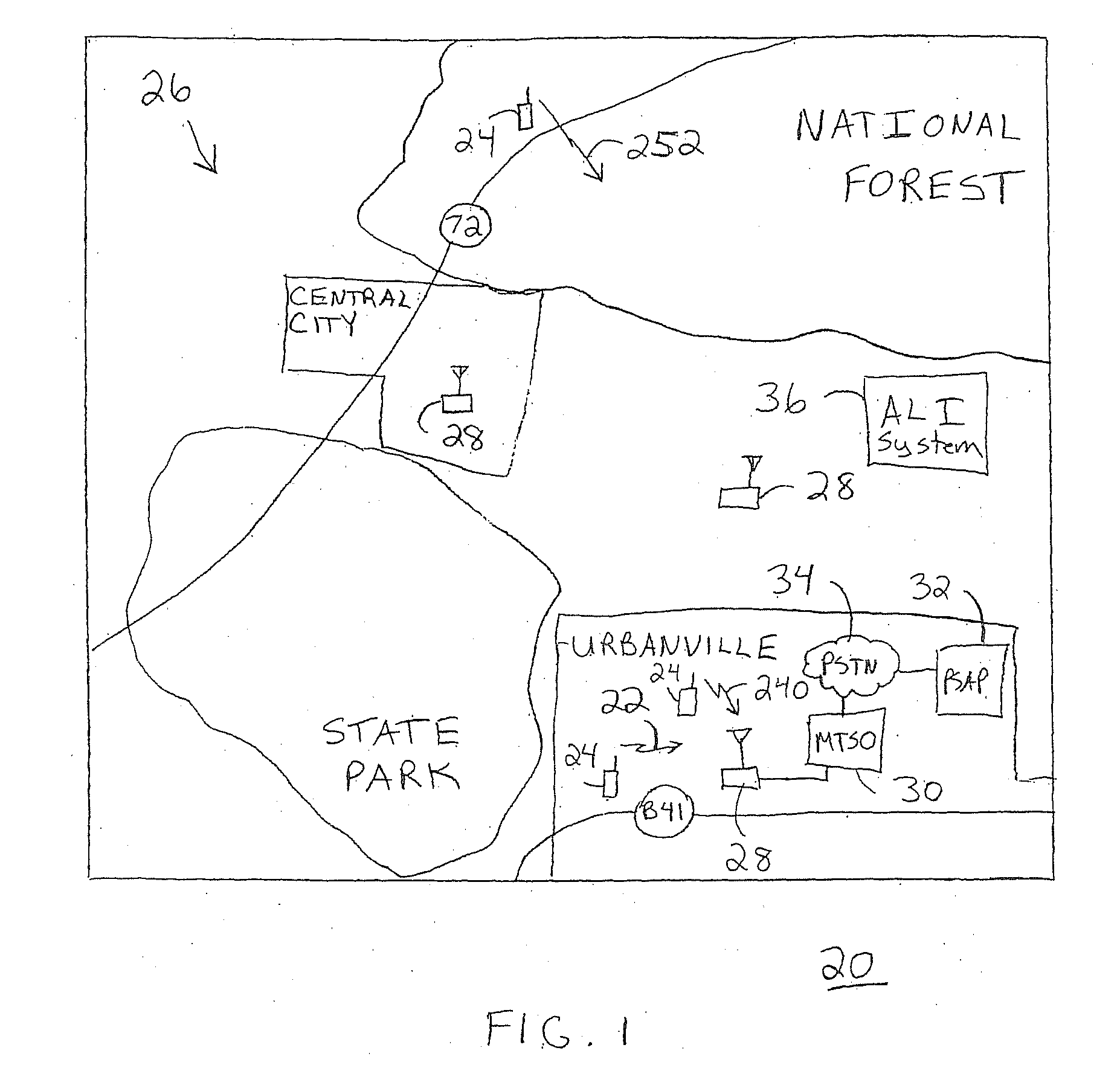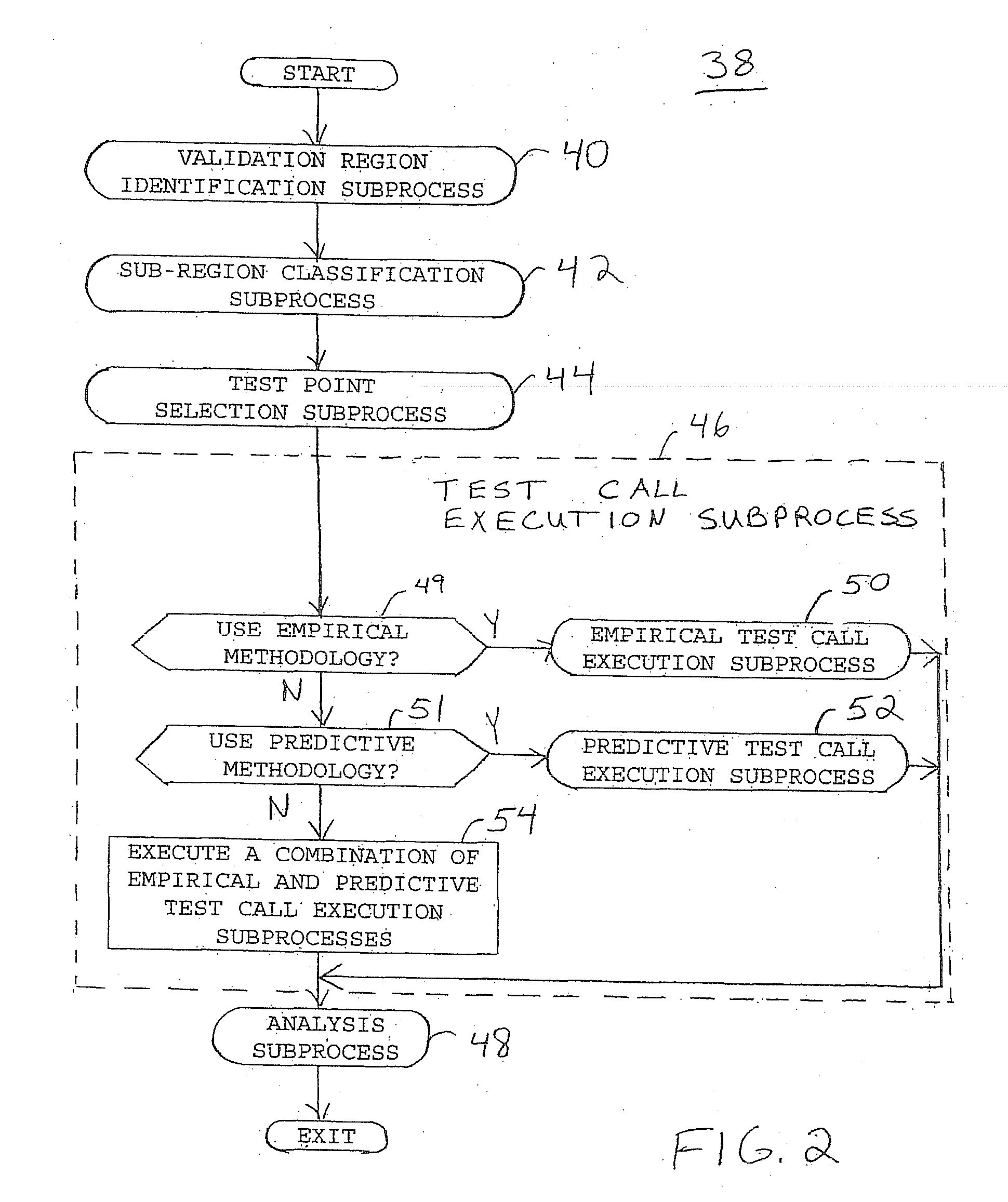System and method for evaluating accuracy of an automatic location identification system
an automatic location identification and system technology, applied in the field of wireless communication networks, can solve the problems of increasing the probability of errors, reducing the accuracy of automatic location identification systems, so as to reduce errors and costs, and effectively utilize automated tools
- Summary
- Abstract
- Description
- Claims
- Application Information
AI Technical Summary
Benefits of technology
Problems solved by technology
Method used
Image
Examples
Embodiment Construction
[0037]FIG. 1 shows a simplified diagram of an environment 20 in which an emergency call 22, originated from a wireless communication device 24 through a wireless communication network 26, may take place. Environment 20 represents a geographical region that may include a number of geographical and man-made features. Geographical features include, for example, hilly terrain, heavy foliage, mountains, flat land, water, and so forth. Man-made features include, for example, buildings, roads, bridges, and so forth. In the United States, emergency call 22 may be originated by dialing “911” from either a wireline telephone (not shown) or wireless communication device 24. However, emergency call 22 is not limited to the “911” digits utilized in the United States, but may encompass any digits utilized as an emergency services number in other regions or countries.
[0038]Wireless communication device 24 engages in wireless communication through one of base stations 28 of wireless communication n...
PUM
 Login to View More
Login to View More Abstract
Description
Claims
Application Information
 Login to View More
Login to View More - R&D
- Intellectual Property
- Life Sciences
- Materials
- Tech Scout
- Unparalleled Data Quality
- Higher Quality Content
- 60% Fewer Hallucinations
Browse by: Latest US Patents, China's latest patents, Technical Efficacy Thesaurus, Application Domain, Technology Topic, Popular Technical Reports.
© 2025 PatSnap. All rights reserved.Legal|Privacy policy|Modern Slavery Act Transparency Statement|Sitemap|About US| Contact US: help@patsnap.com



